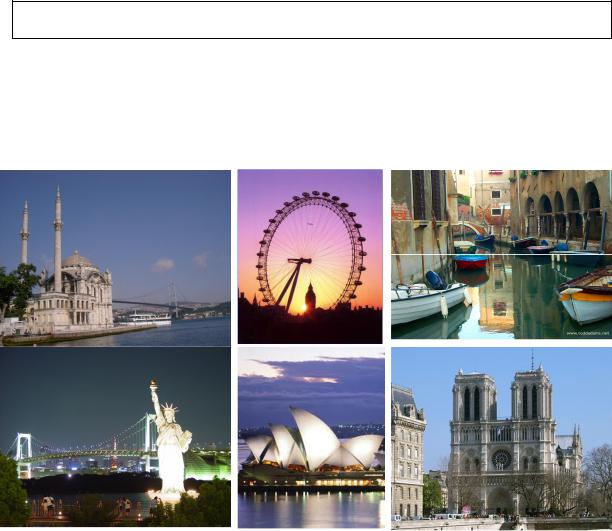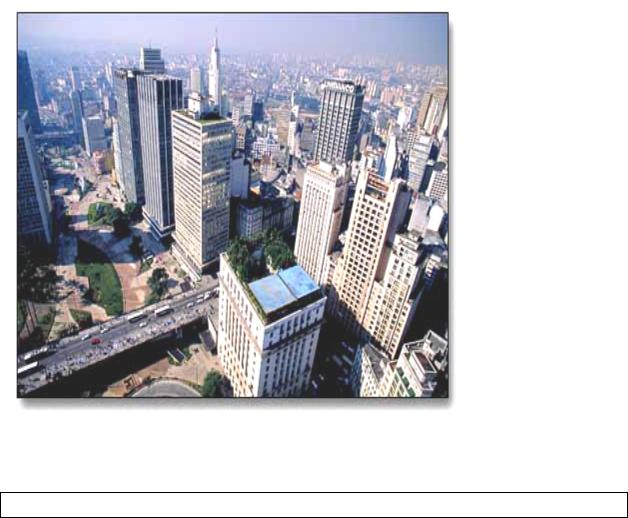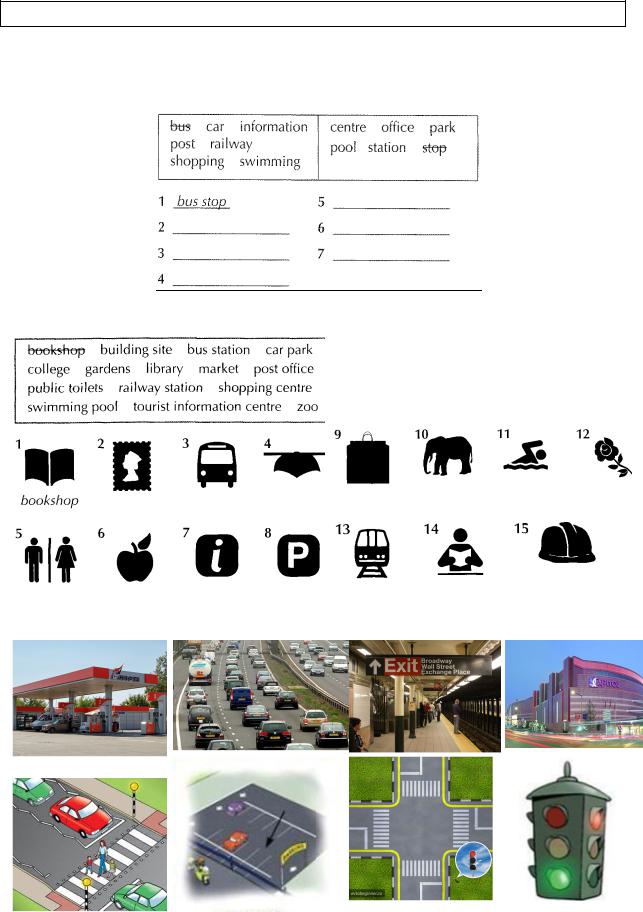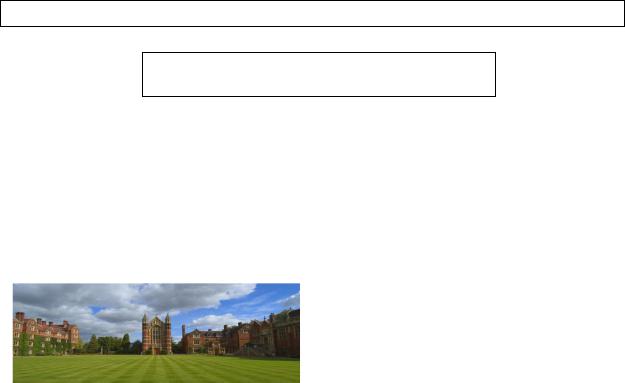
зеленый
.pdfСоциально-культурная сфера общения. Учебно-методическое пособие по английскому языку для студентов естественно-научных факультетов. Изд. 3-е, дополненное. Составители: Е.В. Воронина, Т.В. Дробышева, Л.А. Кривенко. – Воронеж: Истоки, 2012. – 122 с.
Печатается по решению научно-методического совета ф-та РГФ (протокол № 5 от 29 мая 2012 г.)
Настоящее учебно-методическое пособие подготовлено на кафедре английского языка естественно-научных факультетов факультета РГФ Воронежского государственного университета и предназначено для студентов первого курса естественно-научных факультетов.
Целью пособия является развитие у студентов продуктивных и рецептивных видов речевой деятельности в рамках социально-культурной сферы общения: говорения, письма, чтения и аудирования. Тренируются различные стратегии чтения (просмотровое, поисковое, детальное), развиваются навыки диалогической и монологической речи.
Пособие рассчитано на 36 часов аудиторной и 36 часов самостоятельной работы.
Пособие состоит из 9 разделов (Units), охватывающих основную тематику общения в социально-культурной сфере: спорт, природа, искусство, путешествия, жизнь в городе и сельской местности, обычаи и традиции народов, проблемы глобализации, новые информационные технологии, роль иностранного языка в жизни общества.
Каждый раздел содержит предтекстовые упражнения; аутентичные письменные тексты и тексты для аудирования; послетекстовые упражнения, направленные на проверку понимания; блок упражнений на обсуждение информации, полученной из текстов; а также упражнения, направленные на формирование и развитие навыков письменной речи. В конце каждого раздела дан комплекс дополнительных упражнений повышенной трудности для студентов, имеющих более высокий уровень языковой подготовки.
CONTENTS
UNIT |
reading |
listening |
speaking |
writing |
1 |
a tale about country |
conversations, |
asking and |
a factfile about |
|
vs. city way of life; |
a TV |
giving |
your city |
Rural and Urban |
an article about a |
programme |
directions |
|
Living |
traditional English |
|
|
|
village |
|
|
|
|
|
|
|
|
|
p. 5 |
|
|
|
|
|
|
|
|
|
2 |
articles about |
a telephone |
a role-play: |
project work: |
|
||||
Wildlife |
animal invaders |
conversation |
choosing |
endangered animals |
and whale hunting |
|
photos for a |
|
|
|
|
|
||
p. 18 |
|
|
website |
|
|
|
|
|
|
|
|
|
|
|
3 |
a brochure about |
a tour guide |
a dialogue: |
project work: |
|
London; |
finding |
Power Point |
|
Arts |
a famous painter’s |
|
information |
presentation about |
biography; |
|
about |
person of art |
|
|
|
|||
p. 31 |
an article about a |
|
museums; |
|
famous recluse |
|
an interview |
|
|
|
|
|
||
|
|
|
|
|
|
opinions about the |
|
|
|
4 |
role of computers; |
conversations |
group |
a letter of |
|
an article about |
|
discussion |
complaint |
The Age of |
computers for the |
|
|
|
Technology |
disabled; |
|
|
|
a factfile about the |
|
|
|
|
|
|
|
|
|
p. 42 |
Internet |
|
|
|
|
|
|
|
|
|
|
|
|
|
3
UNIT |
reading |
listening |
speaking |
writing |
|
5 |
extracts from a |
a conversation |
sharing your |
a formal letter: a |
|
|
travel book; |
traveling |
letter to a holiday |
||
Around the |
an interview with |
about ‘ethical |
experience; |
company; |
|
a famous |
travel’ |
a game: travel |
booking a room |
||
World |
|||||
explorer |
|
around the world; |
|
||
|
|
|
|||
p. 50 |
|
|
booking a holiday |
|
|
|
|
|
|
||
|
|
|
|
|
|
6 |
encyclopaedia |
a talk about |
group discussion: |
a for and against |
|
|
extracts; |
globalistion |
|||
Global Affairs |
an article about |
process |
expressing opinion |
essay |
|
|
Microsoft; |
|
|
|
|
p. 62 |
an article about |
|
|
|
|
globalization |
|
|
|
||
|
|
|
|
||
|
|
|
|
|
|
7 |
a magazine |
presentations |
group discussion: |
a biography of a |
|
|
article about |
by the Olympic |
famous sports person |
||
Sports |
keeping fit; |
Committee |
expressing opinion |
|
|
encyclopaedia |
|
|
|
||
|
|
|
|
||
p. 74 |
extracts about |
|
|
|
|
kinds of sport; |
|
|
|
||
|
|
|
|
||
|
an article about |
|
|
|
|
|
female football |
|
|
|
|
|
fans |
|
|
|
|
|
|
|
|
|
|
8 |
an article about |
a radio |
a dialogue about |
an informal letter |
|
|
dying languages; |
interview |
the Russian |
|
|
Languages and |
an article about |
|
language |
|
|
Communication |
texting |
|
|
|
|
|
|
|
|
||
p. 83 |
|
|
|
|
|
|
|
|
|
|
|
9 |
an article about |
conversations |
making suggestions |
project work: |
|
|
festivals in |
festival |
about what to do at |
writing theses for an |
|
Customs and |
Scotland; |
committee |
a festival; giving |
oral presentation |
|
celebration of |
meeting; April |
advice |
|
||
Traditions |
|
||||
Christmas in |
Fool’s Day |
|
|
||
|
|
|
|||
p. 95 |
different |
celebration |
|
|
|
countries |
|
|
|
||
|
|
|
|
||
|
|
|
|
|
|
Scripts p. 112 |
|
|
|
|
|
|
|
4 |
|
|

Unit 1
Rural and Urban Living
In this module you will:
Read about country vs. city way of life; a traditional English village
Talk about pros and cons of living in a city/village
Test your knowledge of cities
Listen to a TV program audio script
Write a factfile about your city
Learn how to ask and give directions
Useful vocabulary:
Nouns |
traffic, convenience, shopping mall, car park, multi-screen |
|
cinema, entertainment complex, countryside, lane, depopulation, |
|
town dweller, background, housing estate, rural area, facility, |
Verbs |
transport link |
to surround, to move to, to get to know |
|
Adjectives |
exciting, ancient, huge, cold, wet, hot, dry, quiet, modern, |
|
expensive, capital, provincial, famous for, urban, overcrowded, |
Phrases and |
multi-cultural, easy-going, |
public transport, tourist information center, slum conditions, pace |
|
collocations |
of life, lack of smth, to provide access, remote area, traffic free |
Linkers |
zone, to be curious about smth, |
despite, conversely, however, for instance |
|
Prepositions |
opposite, next to, on the left/right, at the top/bottom, on the corner |
|
of |
5

1. Lead-in
1a Look at the photos and choose the names of the cities from the box (There are some extra names).
Istanbul |
Venice |
Moscow |
Paris |
Krakow Sydney London |
||
|
New York |
San Paulo Tokyo |
Singapore |
|||
1b Match the adjectives 1-10 with their opposites (a-j), choose two or three words to describe each city in the photos. e.g. : London/Paris is …
1 |
exciting |
a |
hot |
|
6 |
noisy |
f |
ugly |
2 |
old, ancient |
b |
dry |
|
7 |
beautiful |
g |
boring |
3 |
huge |
c |
quiet |
|
8 |
cheap |
h |
tiny |
4 |
cold |
d |
modern |
|
9 |
busy |
i provincial |
|
5 |
wet |
e |
expensive |
|
10 capital |
j |
peaceful |
|
1c What do you know about San Paulo? Guess if the statements are true or false.
1San Paulo is huge and noisy.
2The public transport is expensive.
3It’s situated in Argentina.
4It’s famous for soap operas.
5It’s on the coast.
6The summers there are wet.
Look through “Ten Facts about San Paulo” and check if you were right.
6

Ten Facts about
San Paulo
|
It’s |
in the south |
|||
|
of Brazil. |
|
|
||
It’s a big city. |
|||||
|
It |
isn’t a |
capital |
||
|
of |
|
|
Brazil. |
|
|
(Brasilia |
is |
the |
||
|
capital.) |
|
|
||
|
It’s 75 kilometres |
||||
|
from the sea. |
||||
|
In |
|
summer, |
the |
|
|
weather |
is |
hot |
||
|
and wet. |
|
|
||
|
It’s |
famous |
for |
||
|
coffee! |
|
|
||
|
The |
restaurants |
|||
|
are good. |
|
|
||
|
It |
isn’t |
a |
quiet |
|
|
city. |
|
|
||
San Paulo and Corinthians are football clubs in the city. They’re famous in South America.
In fact, it’s very noisy. The buses aren’t expensive.
2.Listening
 2a Listen to two conversations and answer the questions. Track 01.
2a Listen to two conversations and answer the questions. Track 01.
1Are the conversations between:
a)two students?
b)two teachers?
c)a teacher and a student?
2The situation is:
a)on the phone.
b)in a class.
c)in a café.
 2b Listen again and fill in the gaps with the missing words and phrases.
2b Listen again and fill in the gaps with the missing words and phrases.
1 |
2 |
A: Good morning. Come in. What’s |
A: Hello! Come in. Are you Ayla? |
your name? |
B: 5) ________ . |
B: Pavel. |
A: OK. Where are you from, Ayla? |
A: OK, Pavel.1)_______ . Where are |
B: Istanbul, in Turkey. |
you from? |
A: 6) ________ ? |
B: From Krakow, in Poland. |
B: Sorry? |
A: Oh, OK. Tell me something about |
A: Tell me something about Istanbul. |
7

Krakow.
B:Well, it’s a beautiful city. It’s in the south of Poland. 2) ________ – that’s Warsaw.
B: Oh, OK. It’s a big city, very beautiful, but very noisy! The mosques are very famous.
A: Is it a big city? |
A: I see. 7) ________ ? |
B: No, it isn’t. 3) ________ . |
B: It’s hot in the summer and it’s wet |
A: Anything else? |
in winter, 8) ________ . |
B: It’s cold in winter. er … for you, |
A: Are the restaurants good? |
4) ________ ! |
B: Yes, they are, very good! |
A: OK, good, Pavel. We’re on … … |
|
2c Practise the conversations in Ex. 2.a/b and make similar conversations with your partner.
 2d Listen to a TV programme I love my city and match the people with the cities. Track 02.
2d Listen to a TV programme I love my city and match the people with the cities. Track 02.
1 Yukako |
a) Cape Town |
|
2 |
Pablo |
b) Chicago |
3 |
Stefan |
c) Kyoto |
4 |
Peter |
d) Lima |
 2e Listen again and decide if the information below is true (T), false (F) or not mentioned (NM).
2e Listen again and decide if the information below is true (T), false (F) or not mentioned (NM).
1There is a lot of traffic in Kyoto.
2Lima is famous for its port.
3The speaker loves the museums in Chicago.
4There is a beautiful fountain in Cape Town.
 2f Listen and complete the table. Track 03.
2f Listen and complete the table. Track 03.
City, Country |
Population |
International telephone codes |
1 |
|
|
2 |
|
|
3 |
|
|
4 |
|
|
8

3. Language skills
Places in the city
3a Write seven places in a city. Combine the words from the boxes 1-2. You can use the words in the box on the right more than once
1.2.
3b Match the places in the box with the symbols below.
3c What are the places in the pictures? What objects/facilities can you name?
9
3d. Read the article about famous cities from an in-flight magazine. Fill in the missing words.
is (2) there’s (2) a lot of |
it’s (2) there are (2) an (2) a any |
Famous cities
In all cities there are large buildings, parks, museums and schools, but a lot of cities are famous for other things.
Sydney, city of music and city of beaches.
Sydney1)______ in the southeast of Australia. The population is four million. In Sydney 2)______ an opera house and there are 3)______ lovely beaches. Bondi Beach is famous for surfing. Sydney is a fun city.
Mumbai, city of films. |
Venice, city of water. |
||
Mumbai is in the west of India. It’s a big |
Venice 9)_______ in the northeast |
||
city with over ten million people – |
of Italy. It isn’t 10)________big |
||
4)_____ a busy city. There isn’t 5)______ |
|
|
|
city – the population is under |
|||
opera house, but the city is famous for |
500,000. In Venice there aren’t |
||
films. In Los Angeles, there’s Hollywood; |
11)______buses or cars. Venice is |
||
in Mumbai, 6)______ Bollywood. In |
a city of water. 12)_______ 150 |
||
Mumbai 7_______ a lot of cinemas – over |
canals and a lot of boats. It’s a |
||
200! |
beautiful city. |
||
It’s 8)_____ exciting city. |
|
|
|
3e Fill in a/an or be (in the correct form).
1 |
In London there is |
|
opera house. |
||||||||||
2 |
There two international airports in New York. |
||||||||||||
3 |
|
|
|
|
|
|
|
|
|
any canals. |
|||
In Edinburgh there |
|
|
|||||||||||
4 |
There isn’t harbour |
in Mexico City. |
|||||||||||
5 |
|
|
|
|
temples in Paris? |
||||||||
|
|
there any |
|||||||||||
6 |
|
Are |
there any museums in Nairobi? – Yes, there . |
||||||||||
|
|
|
|
|
|
|
|
|
|
|
|
|
|
3f. Ask and answer questions with a partner about places in your (area) of the city, using the words from the vocabulary section? Use the model below.
-Is there a cinema in ….?
-Yes, there’s.
/- No, there isn’t.
-Are there any parks in ….?
-Yes, there are some/a lot of.
/- No, there aren’t any.
10

4. Speaking: On the street
4a Complete the text with the words in the box.
language famous gardens city population students England
CITY FOCUS: CAMBRIDGE
Cambridge is a famous university 1) ________ in the UK. It’s in the east of 2)
________, 80 kilometres north of London. It’s a small city with a 3) ________ of 110,000. Cambridge is a beautiful city, and very green, with many parks and 4)
________. There are 31 colleges in the University of Cambridge – King’s and Trinity are two 5) ________ colleges. There are 17, 000 6) ________ at the university. There are also a lot of English 7) ________ schools in the city.
 4b Listen to talk. Where are the people? Track 04.
4b Listen to talk. Where are the people? Track 04.
at a university
at an English language school
on a tour bus
 4c Listen again and tick the words you hear.
4c Listen again and tick the words you hear.
colleges |
shopping |
railway |
bookshops |
centre |
station |
post office |
car park |
library |
university |
public |
tourist |
market |
toilets |
information |
bus |
park |
centre |
station |
|
zoo |
|
|
gardens |
 4d Listen again and choose the best words to complete the sentences.
4d Listen again and choose the best words to complete the sentences.
1The bookshop is
a)in Trinity College.
b)opposite Trinity College.
c)next to Trinity College.
2The market is
a)next to Trinity College.
b)in the shopping centre.
c)between Trinity College and the main post office.
3Bus station is
a)next to the park.
b)opposite the main post office.
c)between the main post office and the market.
4 The library is
a)opposite the bus station.
b)in the shopping centre.
c)between King’s College and the tourist information centre.
4e Look at the pictures and expressions below. Translate them into your language.
11
